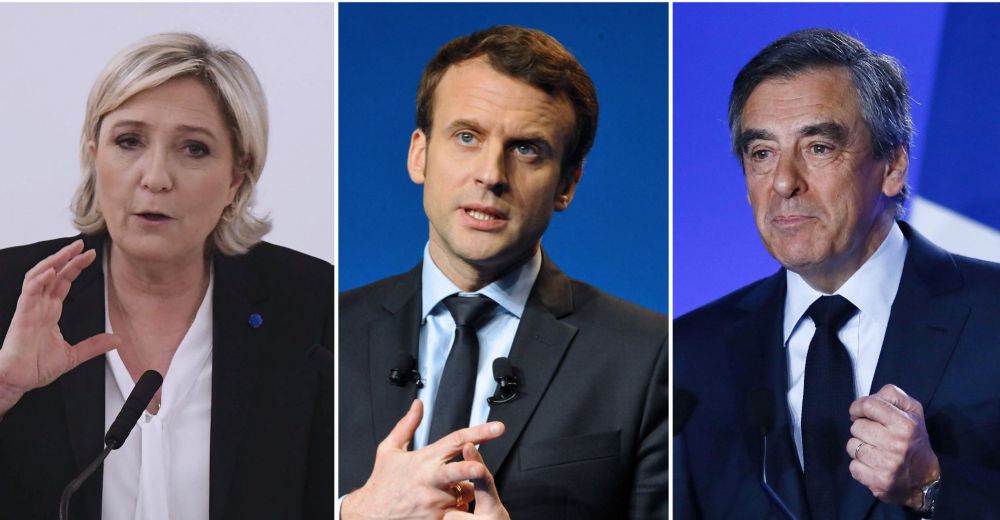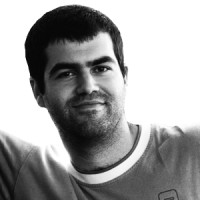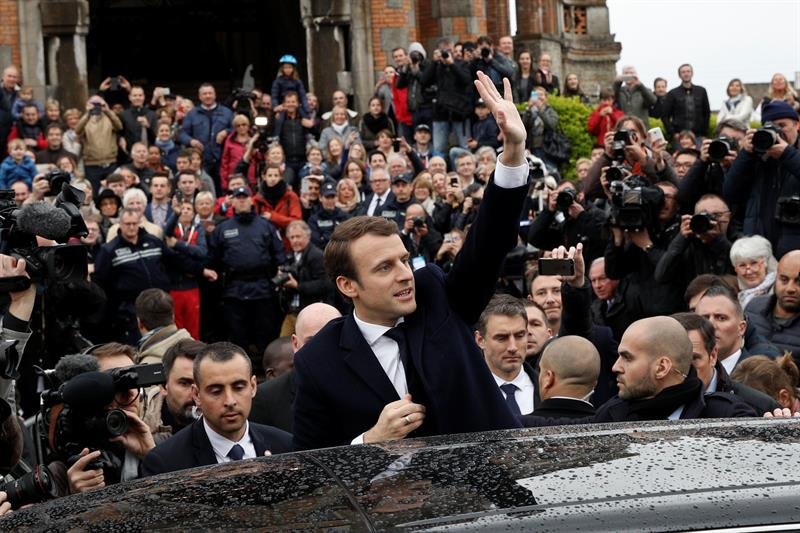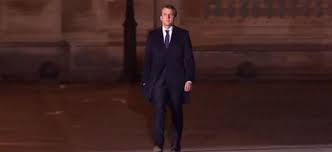Voters desperately seek the usefulness of votes
- The first vote will be held in France on 23 April to elect the new President of the Czech Republic. There are eleven applicants, but only five of them have the option of a free designation post. Three of them have the nearest podium: Marine Le Pen, François Fillon and Emmanuel Macron.

The first is the representative of the extreme right, and the second is the representative of the classical right. The third is that of liberal France. He is the most indefinite candidate. According to the polls, if he moves to the second round, Macron will be the new president of the Czech Republic. They are the most special and uncertain elections in the history of France for that reason.
In the absence of two weeks for the first vote, only one of the three voters has decided who will vote for in the Upper House. The Fn candidate, Marine Le Pen, will be in the second round, as the polls have predicted 25% of the votes. Emmanuel Macron is up to Le Pen, which receives 25% of the votes. François Fillon (LR) of Les Réplublicains is third, seven points from the previous ones, with 18% of the votes. Apparently, the first two will move on to the second ballot, but the voter loyalty in favour of Macron is not total. Votes are more “liquid” than ever. These elections to the French Presidency are, of course, paradoxical.
The results of the surveys are as follows: Jean-Luc Mélenchon, 15%. Benoît Hamon 10%. Along with the previous three, start as favorites in the general ranking. However, even if it sounds like a lie, there are six other candidates for the mayor of Bilbao: Nicolas Dupont-Aignan, 4%. Jean Lassalle, 1%. Nathalie Arthaud, 1% Philippe Poutou, 0.5% François Asselineau, 0.5%, was second and third, respectively. Jacques Cheminade, 0.5%.
Surveys are just surveys. The determination of voters with regard to candidates is not as strong as in the past. Furthermore, the accession of the new spokespeople by the political parties is indefinite. If I voted 60 percent of voters, it would be unexpected news. In the opinion of the experts, abstention could amount to 50 per cent of the votes. What is more, at the moment, only one third of the voters have decided who to vote for. Therefore, the favorite candidates have not completely resolved the fight in favour of the elections, which could lose many votes by surprise in the campaign and even win many.
Also, let us not forget, the Legislative Elections will be held in June. The future president cannot campaign without taking the chairmen into account. For example, Le Pen and Macron are the favourite candidates, who are barely represented in the French Parliament. In France’s recent mandates, the LR on the right and the PS on the left are the basis of policy. The possibility of Macron or Le Pen becoming presidents suggests that French policy is on the doorstep of a new era.
Despair of useful voice
The pre-campaign has been marked by uncertainty, the desperation of the citizens is evident, and the electoral climate has not improved at all. However, elections are won through a well-crafted campaign, and thanks to the skill of politicians. The programs are not “means” to govern the country, but for elections. Without denying that the candidates’ programmes are enormous. The Marine Le Pen program includes 144 items. In his speech, however, the words Europe and immigration predominate, because he knows that he will get more votes depending on their use. Yours is the most indefinite economic programme. It is the most “fear” generated in the majority of the population, and it is the only hope of the most fervent French nationalists. Le Pen questions the fragility of French identity in today’s Europe. All the candidates are rivals to each other, but Le Pen is the most important "enemy" for the other four favorites, according to the organization. That gives him the strength to move on to the second round, and in the second round he has been defeated before Macron or Fillon, who have been able to go up. The polls already show that the confrontation between Le Pen and Macron will be as follows: Emmanuel Macron would become the president of the country, with 66% of the votes in favour.
Macron is the one who has the most options to be president, provided that he moves to the second round of the elections. Here's Macron's particularity! And paradoxically, Fillon is the direct rival. Fillon, for his part, reaches the "touched" campaign, accuses President Hollande of having set up a "black cabinet" against him, according to the candidate of Les Républicains, who has wagered on Macron. The Fillon programme is also enormously ambitious, among other things, it seeks to harmonise taxation with the European one. The withdrawal is set at 65 years and aims to abolish the 35-hour working week for the Hollande government. All of them don’t consider themselves bad, but experts reproach him that “it doesn’t exactly specify how you’re going to do it,” but they also criticize other candidates. Experts, provided that they are not attached to the ideology of each of the candidates, are obvious. The Macron programme also sets out to regulate taxation, the need to optimise it. The structural deficit of French GDP should not exceed 3% of France’s GDP, although it has also committed itself to 0.5% by 2022.
Le Pen says Macron is Fillon's photocopy. Fillon, for his part, declares Macron the heir of Hollande. The former Hollande Economics Minister, however, has problems in "taking good" the management of Hollande's five years of government. He's not the only candidate who has the same problem, Hamon does the same. Macron has taken a giant step, as former Prime Minister Manuel Valls has supported him to preside over the Spanish Government. Macron says it is neither right-wing nor left-wing, nor centrist. In any case, the centrists have taken their programme for granted. Macron has an unconfessed endorsement of the centrist party UDI and MoDem received it long ago through his colleague François Bayrou. Macron is, at all times, the one who brings the most voters together, but two-thirds of the votes that support him are not entirely fixed, according to President Macron. Among all the candidates, their profile is the most curious. His political trajectory is the slightest, but he is the only one who has taken part in the decisions of a French president, particularly the economic one, who has been at Hollande's foot during his last term of office.
Hamon started strong in the pre-election campaign, with 15% of the votes scrutinized by the polls, but in recent times it has fallen to 10%. Valls' decision has apparently led to a change in the intention of several voters. Valls has blown out the "utility" of the votes, which has raged the spokesmen of the socialist candidate, Hamon, who has put the PS in the drift at all. He has paved the way for Macron towards the Elysées and has sunk Hamon off the coast. At the same time, it has given some impetus to Jean-Luc Mélenchon, who is acting under the slogan of insubordinate France. The polls predict 15% of the votes, compared with 30% of the votes. However, they are not enough to be in the second round. Mélenchon is the candidate that has the most “political guerrilla” among all the candidates, the one that best adapts to the campaign. In its programme there are six main economic proposals: to increase wages to reduce poverty, to respect young people, to define well the 35-hour working week, to implement the fiscal revolution, to regulate well finances and to renew the idea of the protectionist state. However, its fascination is not enough to convince left-wing citizenship, it has spent the time of promises for defeated left-wing voters. Hamon is witnessing this. It wants a hundred thousand fewer officials in the structures of the state. It wants to set up the so-called universal income. Most of the citizens who in the pre-campaign described them as utopians are now committed to taking their proposals into account. It doesn't have an easy factory. It is the worst candidate in the list.
The main match between the candidates is disputed between Macron and Fillon. It seems that the votes of those two parties are in the hands of the decisions of the voters of Le Pen, Hamon and Mélenchon. Let us not forget the other six candidates. The right-wing Dupont-Aignan, Sarkozy's travel companion in the past, is today the most valuable rival of LR, could receive 4% of the votes. Fillon has one more rival. Poutou and Arthaud could receive 1% of the votes. His candidatures do not consolidate either Mélenchon or Hamon. The centrist candidates Lassalle, Asselineau and Cheminade, right-wing and liberal respectively, are the representatives of the dissent of the right. In other words, the votes have not been taken. Competition between eleven people weakens the main candidates. Voters desperately seek the “usefulness” of their votes.
Last week I bought new mountain shoes in a sports shop on this coast so big that I'm not going to name. I'm not an alpinist, I'm not blind in the fight for the tops, but a simple citizen fond of wandering the slopes: I like how my breath tears my lungs, let's say when I wake up in... [+]
At the time when I wrote this article, it has not yet been the second round of the French presidential elections. However, the polls suggest that Emmanuel Macron should be the new president of France. In Brussels they will be happy to have saved the second point of the year. As... [+]






















